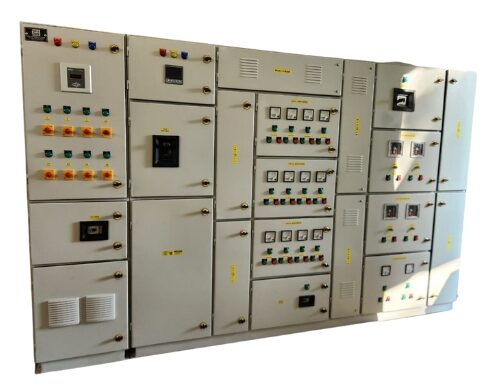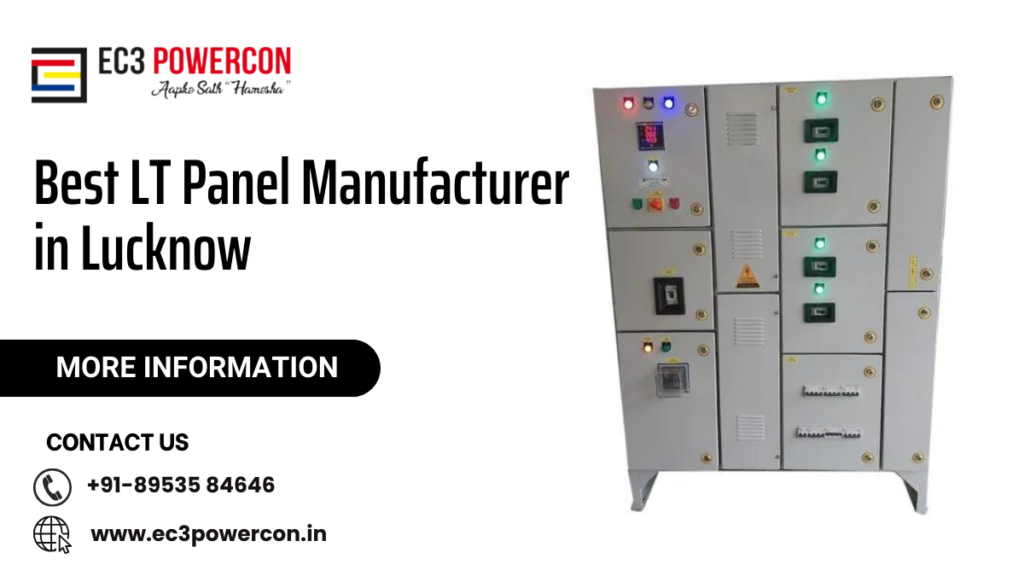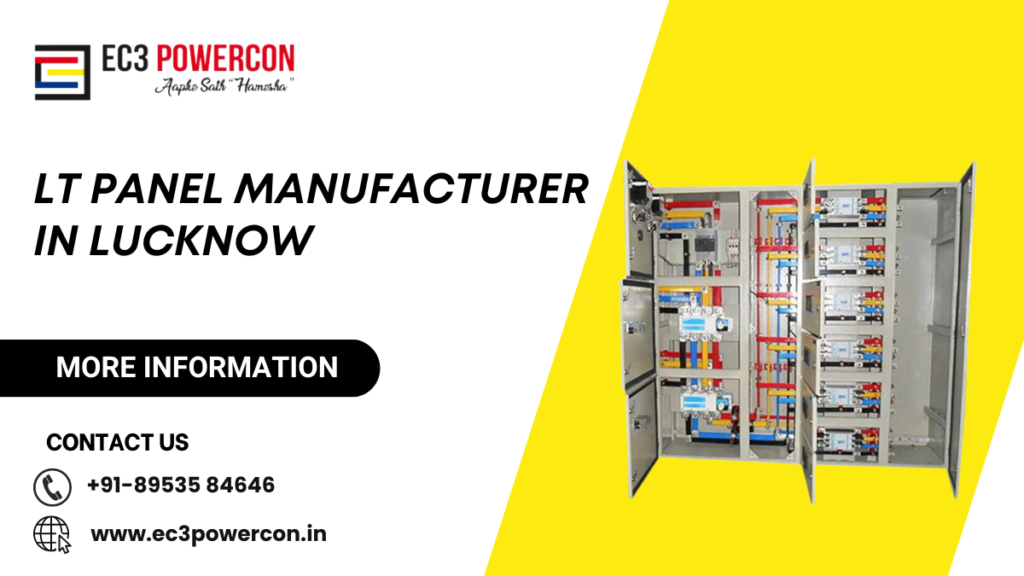From PLC controls to advanced automation and assured security features, discover how control panels in a complete solution will improve your overall business operations.
Today, controlled electrical signals and advanced automation technologies are needed to achieve simple and efficient control systems. Whether it is for the safety of general electrical areas, or to improve the efficiency of cargo handling, one product with a more sophisticated design than each with the overall production and consumption Read on to learn about the features and benefits of using electricity before discovering why it can boost your performance.


Table of Contents
What is a control panel ?
An electrical control panel serves as a centralized hub that integrates a variety of electrical devices to manage and regulate specific mechanical functions for machinery and equipment.
These panels play a crucial role in facilitating operations and ensuring safety by employing various electrical components to maintain power, control production processes, and direct operations effectively. Their significance spans across diverse industries, with organizations worldwide recognizing their indispensable value. For instance, in the India alone, substantial investments were made in electrical control panels, reflecting their widespread adoption and importance.
By housing, safeguarding, and orchestrating essential electronics, control panels form an integral component in automated manufacturing, operation, and production processes. They provide the necessary infrastructure to store and protect sensitive electrical equipment while enabling precise control and coordination of various mechanical functions.
What are the components of a control panel?
At first glance, control panels may seem straightforward in their design and composition. Generally, they comprise two primary components: the panel structure and electrical features.
Panel structure
The enclosure of a control panel typically serves as a protective housing for its electrical components, shielding them from external factors. Usually constructed from durable materials like aluminium or stainless steel, these enclosures are designed to withstand various forms of interference or impact, especially when installed outdoors.
Enclosure sizes vary depending on the number of electrical components housed within them, with larger enclosures typically found in industrial settings. Each enclosure must meet specific safety standards, including UL safety ratings, IP ratings for ingress protection against solids and liquids, and NEMA classifications for environmental protection.
Different classifications, such as suitability for indoor or outdoor use, waterproofing or water resistance, resistance to dust and contaminants, and ratings for hazardous conditions or explosion-proofing, must be clearly indicated on the enclosure for compliance and safety purposes.
In addition to the enclosure, a back panel is often included to provide structural support for the electrical components. This back panel serves as a mounting structure, facilitating the installation of components using wiring ducts and DIN rail mounting systems.
Electrical components
Transformers serve a crucial role in control panel circuits by adjusting alternating current (AC) voltages, either stepping them up or down as required. In industrial settings, a typical transformer within a control panel might convert 480V to 120V and vice versa, facilitating compatibility with various equipment and machinery.
The control panel’s power supply is responsible for converting AC voltage into direct voltage (DC), ensuring a stable and reliable power source for the panel’s components.
Circuit breakers act as vital safety mechanisms within control panels, disconnecting electrical circuits to prevent damage from excessive power flow. They detect overloads or faults and interrupt the connection to safeguard the panel and connected equipment.
Terminal blocks function as organized connection points within the control panel, facilitating the orderly routing of multiple wires and cables. Custom-designed terminal blocks enable efficient distribution of power from one source to various electrical components within the panel.
The Programmable Logic Controller (PLC) serves as the intelligence behind control panel operations, analyzing inputs and controlling outputs to automate machinery and equipment. It functions as the central processing unit (CPU), managing tasks and responding to changing conditions in real-time.
Network switches establish connections between the PLC and the diverse machinery and equipment on conveyor systems or production lines, enabling seamless communication and coordination.
Relays act as switches controlled by the PLC, directing electrical currents to various components based on commands received. They enable the activation of higher currents using lower currents, enhancing efficiency and control within the panel.
Contractors, similar to relays but capable of handling larger capacities and higher currents, control devices such as electric motors that require substantial power.
Overload relays protect higher-voltage electrical devices like motors from overheating, ensuring safe and reliable operation.
Fuses provide basic safety by protecting circuits within the control panel from overload currents, preventing damage to components.
Motor drives, installed within the control panel, regulate the operation of connected motors, controlling their speed and direction as required for specific applications.
The benefits of a control panel
At the core of industrial operations, control panels offer a myriad of benefits that underscore their indispensable role in facilitating efficiency and safety. While their overarching advantage lies in their ability to connect electrical devices, maintain power, and ensure operational safety, it’s worth delving deeper into the specific advantages that make them essential components of industrial setups.
Advanced automated control
By integrating electrical components and leveraging the intelligence of PLC technology, control panel installations facilitate the achievement of optimal operating conditions. This ensures the seamless functionality of advanced automated conveyor systems, enabling the coordination of robotics and multiple machinery units operating concurrently.
Customization Flexibility:
Electrical control panels offer extensive customization capabilities, allowing them to be tailored to meet specific operational requirements. Whether adapting to unique workflows or accommodating specialized equipment, custom-designed panels ensure optimal performance and efficiency.
Reliability and Safety:
Equipped with self-assessment features and data-driven capabilities, control panels possess the ability to accurately evaluate individual machinery components and provide performance insights. In addition to enhancing operational efficiency, these panels prioritize safety, maintaining a secure working environment for personnel and equipment alike.
Energy Efficiency:
By optimizing processes and streamlining operations, control panels contribute to energy efficiency, ultimately reducing overall energy consumption and operational costs. Their ability to enhance system efficiency translates into tangible savings while minimizing environmental impact.
Customise your perfect control panel to enhance your operational requirements
A sophisticated conveyor system relies heavily on a reliable control panel for its operation. From ensuring power supply to providing safety measures and monitoring performance, control panels play a vital role in the success of any manufacturing or production setup.
For businesses seeking to streamline their production lines and minimize downtime, investing in a comprehensive turnkey solution is essential. That’s where EC3 Powercon comes in.
At EC3 Powercon, we understand the importance of keeping forward-thinking businesses moving forward. With our innovative design and installation services, we offer a range of electrical solutions, including custom control panel design, manufacturing, and installation.
As control panel manufacturers, we take pride in delivering tailored solutions that seamlessly integrate into your conveyor system, meeting your specific requirements. Our experienced technicians ensure professional installation, guaranteeing optimal performance and reliability.
If your business is ready to enhance its operations and unlock new levels of efficiency, don’t hesitate to get in touch with us today. Let EC3 Powercon be your partner in driving success and innovation in your industry.
Must Read: Everything about Power Distribution Panel Board Manufacturing




Pingback: How do Professional Electrical Installation Services Work